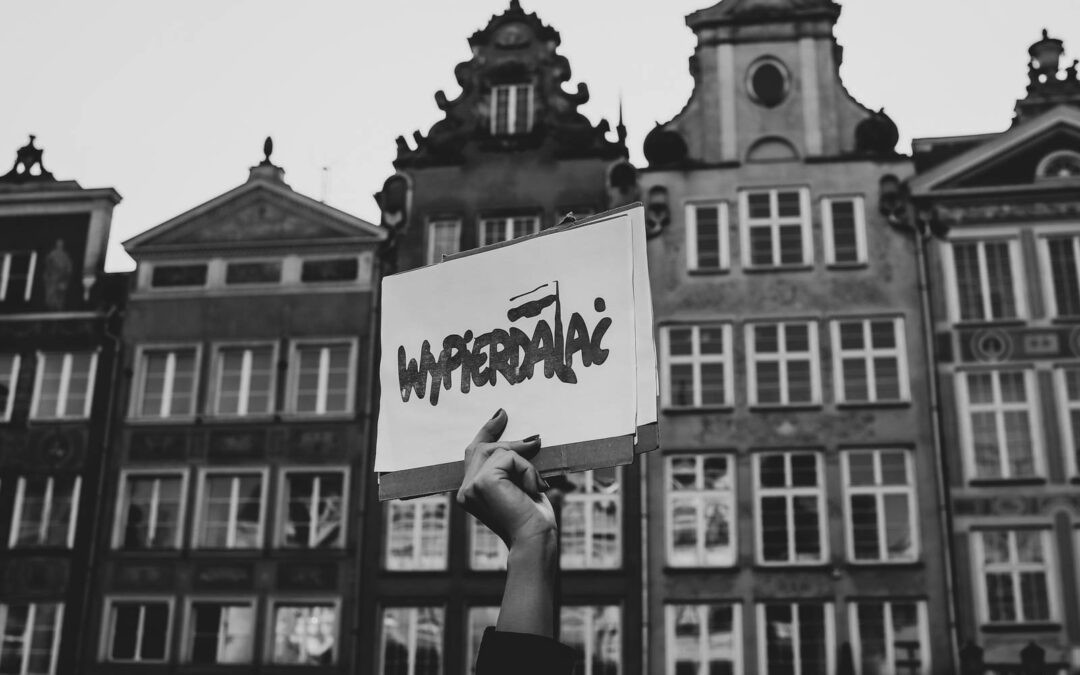On Thursday, Poland’s Constitutional Tribunal ruled that abortions in cases where the foetus is diagnosed with serious and irreversible birth defects are unconstitutional. Given that these represent around 98% of the 1,000 or so legal terminations that take place annually in Poland, the ruling would in effect introduce a near total ban on abortion.
In response, tens of thousands of protesters – the majority of them women – have taken to the streets of towns and cities around the country, in defiance of coronavirus restrictions strictly limiting the size of gatherings.
Their anger has been directed not mainly towards the Constitutional Tribunal itself, but rather the ruling national-conservative Law and Justice (PiS) party, which is seen as being behind the ruling.
The country’s influential Catholic church has also been a target, with some protesters disrupting Sunday Masses yesterday and others vandalising church buildings.
Below we present images from yesterday’s protests in the city of Gdańsk on Poland’s northern Baltic coast, taken by Italian photographer Luca Aliano.
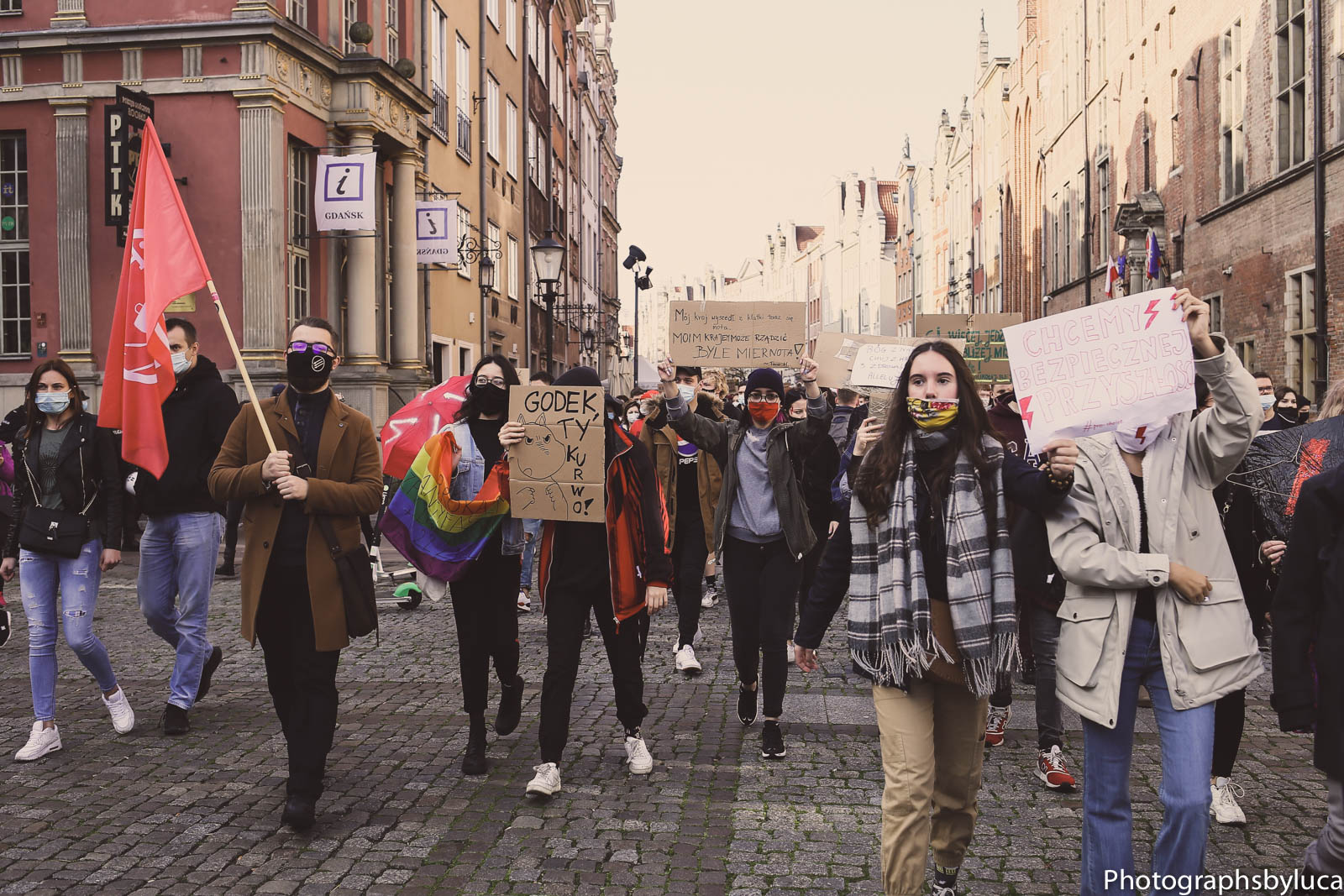
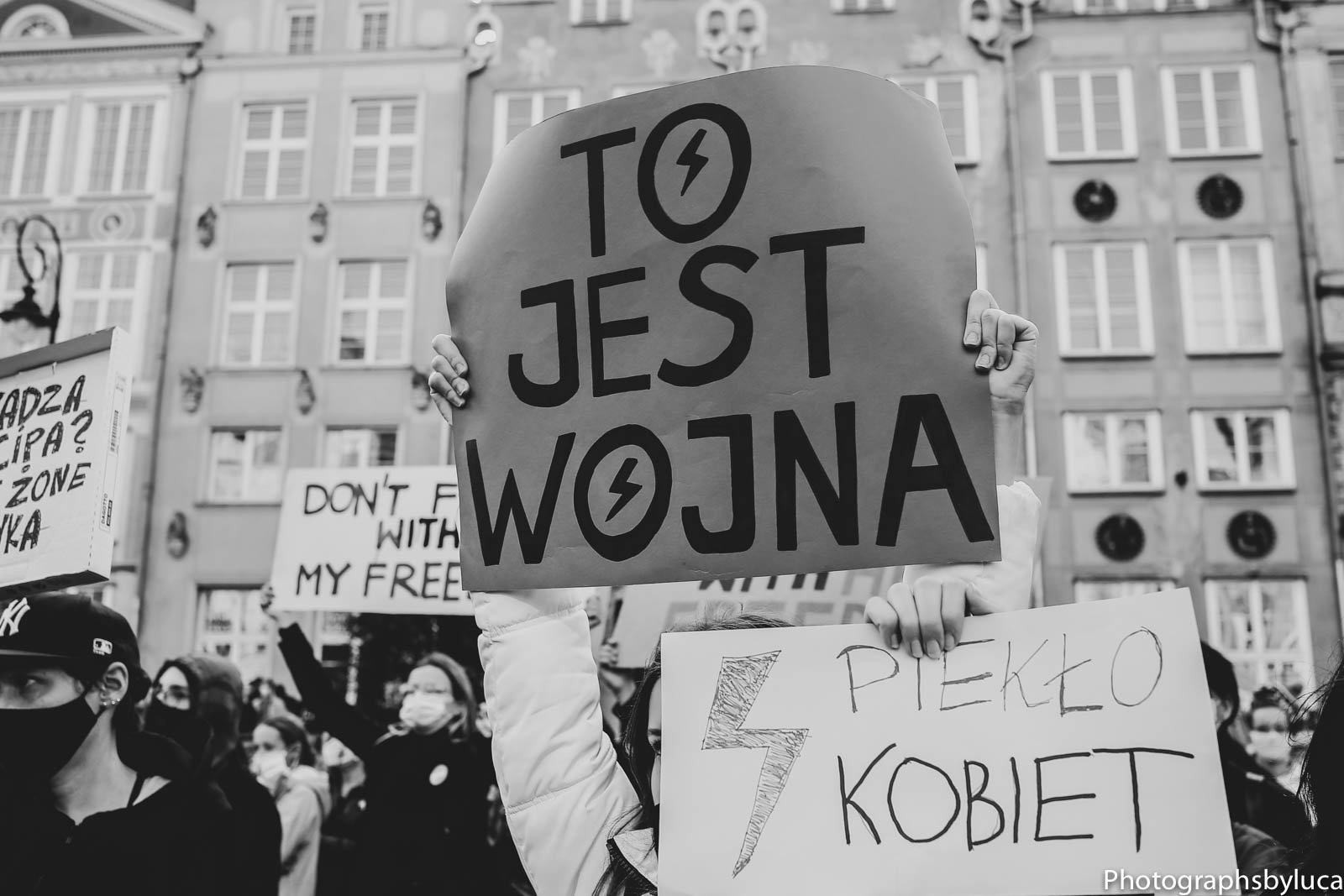
“To jest wojna” (“This is war”) has become one of the main slogans of the protesters.
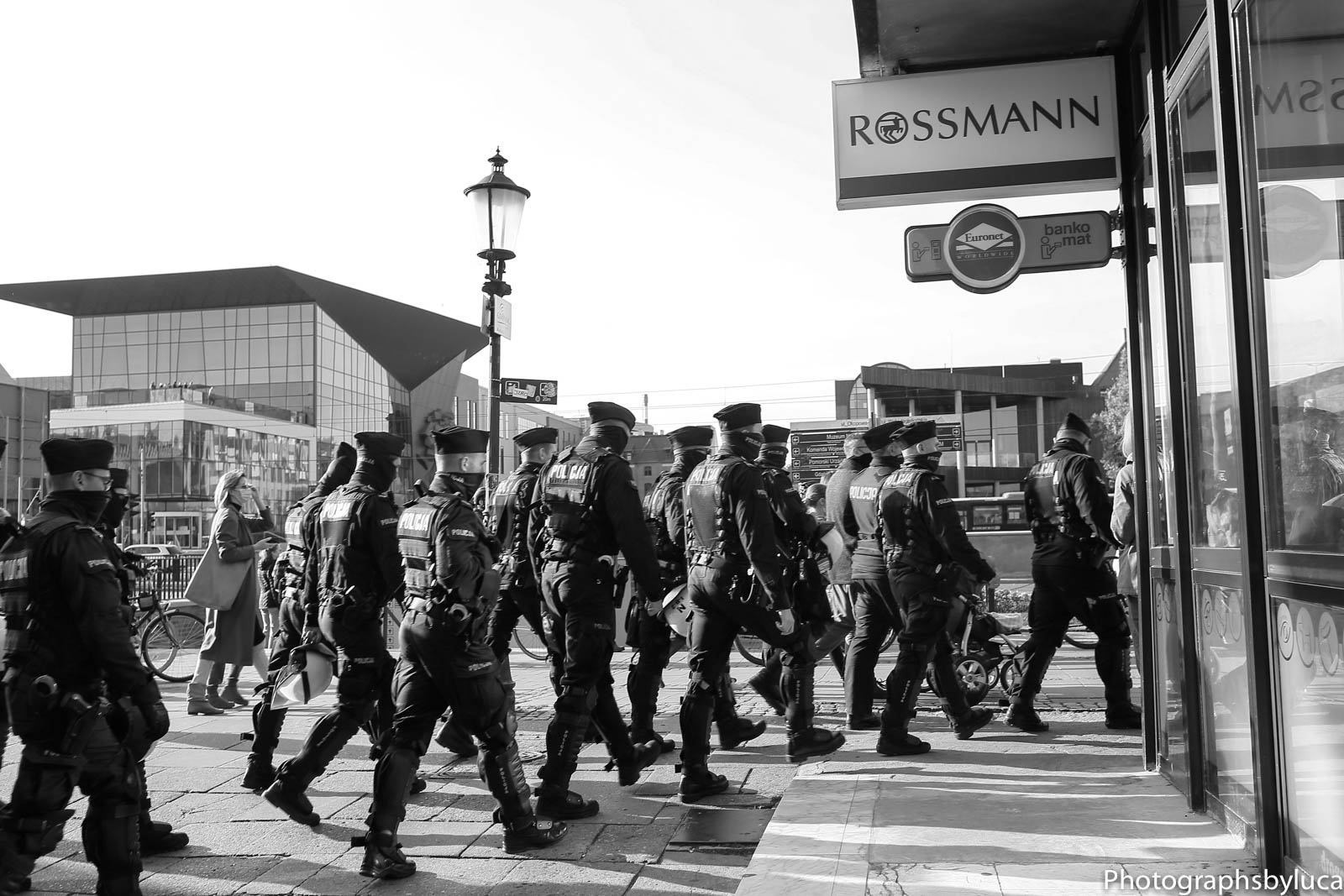
There has been a heavy police presence at the protests. On Thursday evening, officers protecting the house of PiS chairman Jarosław Kaczyński clashed with demonstrators. Police deployed tear gas against the crowd, after some protesters threw objects at them.
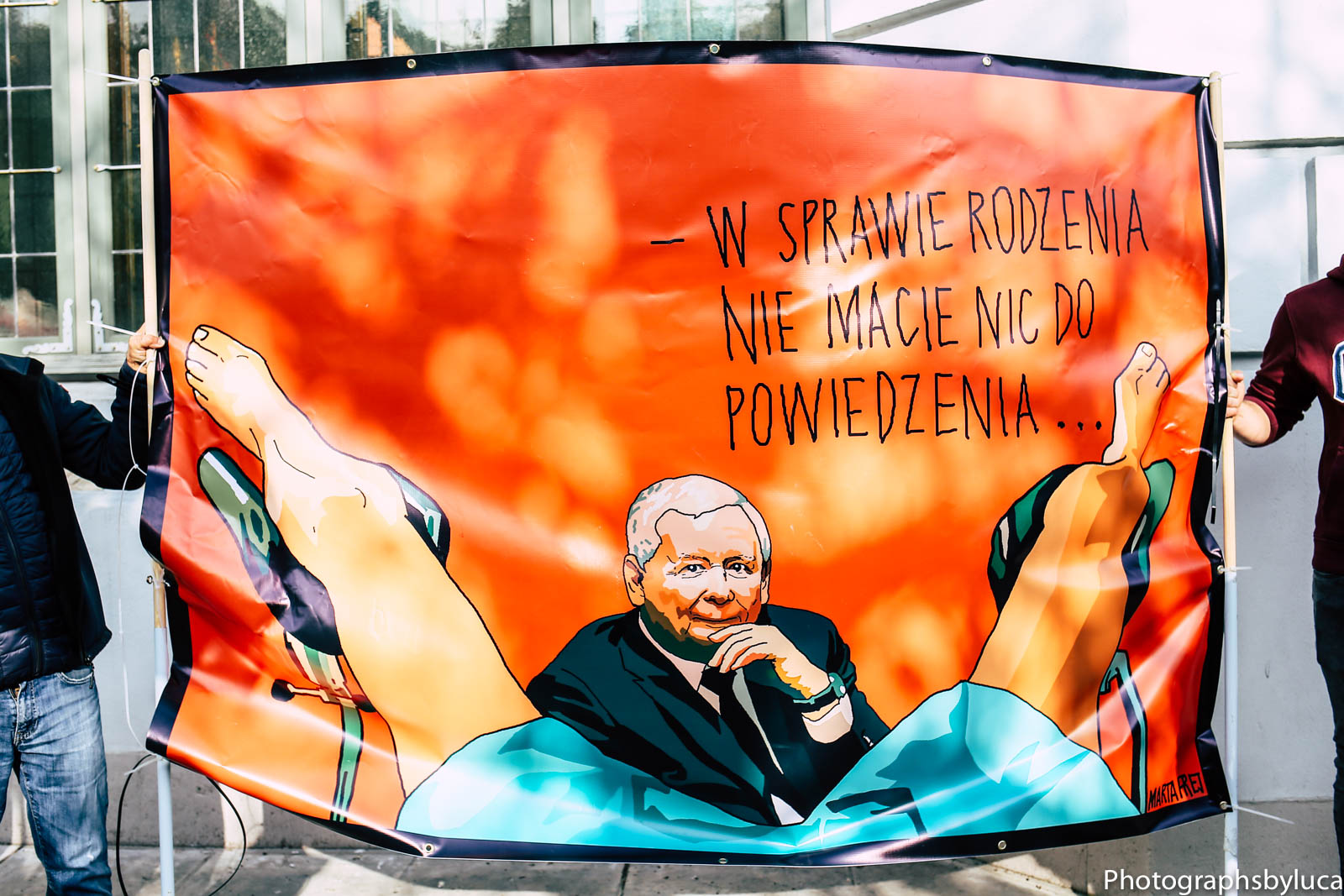
The image shows PiS leader Kaczyński, and the words translate roughly as “Giving birth is none of your business”.
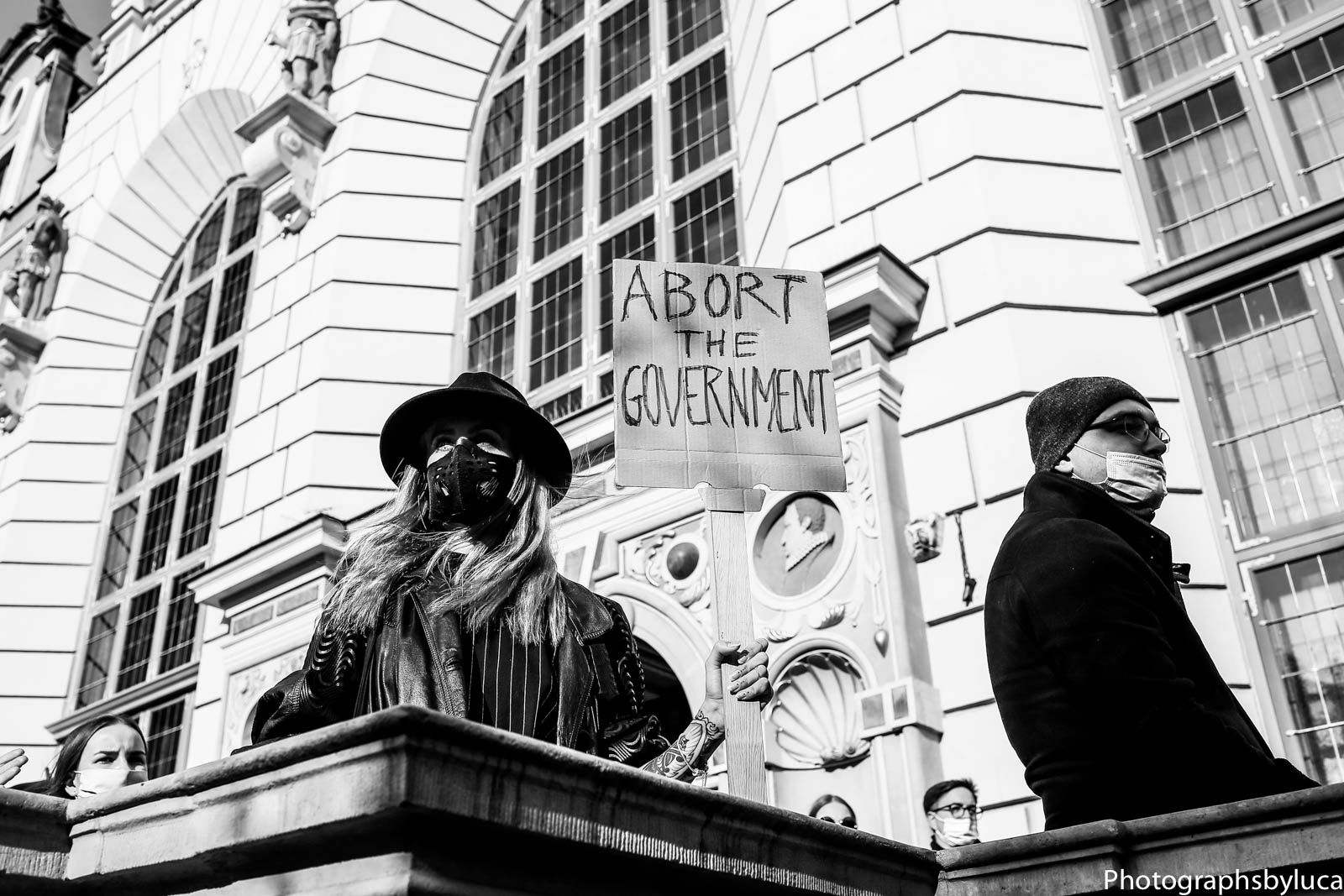
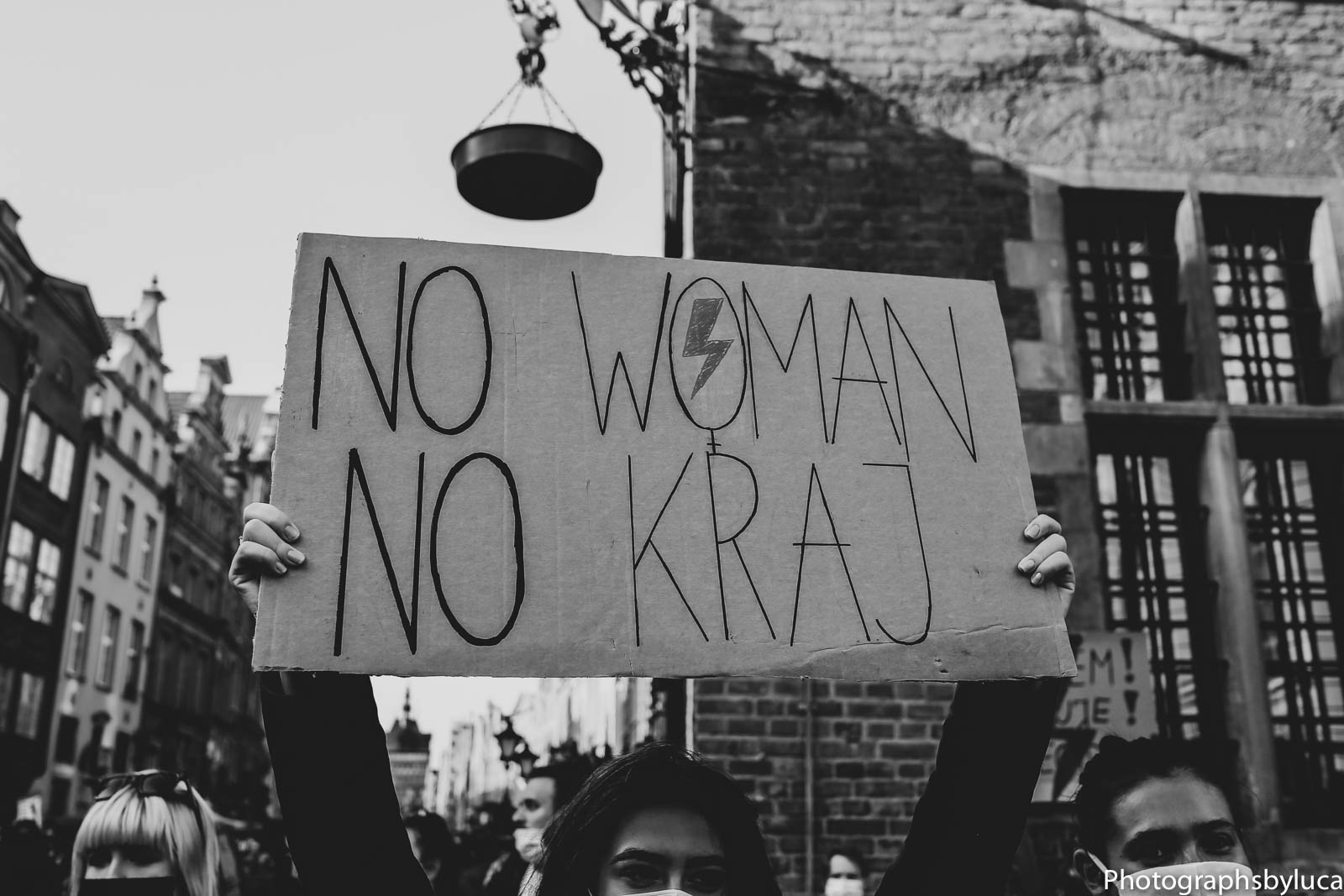
“Kraj” (pronounced like the English word “cry”) means “country” in Polish.
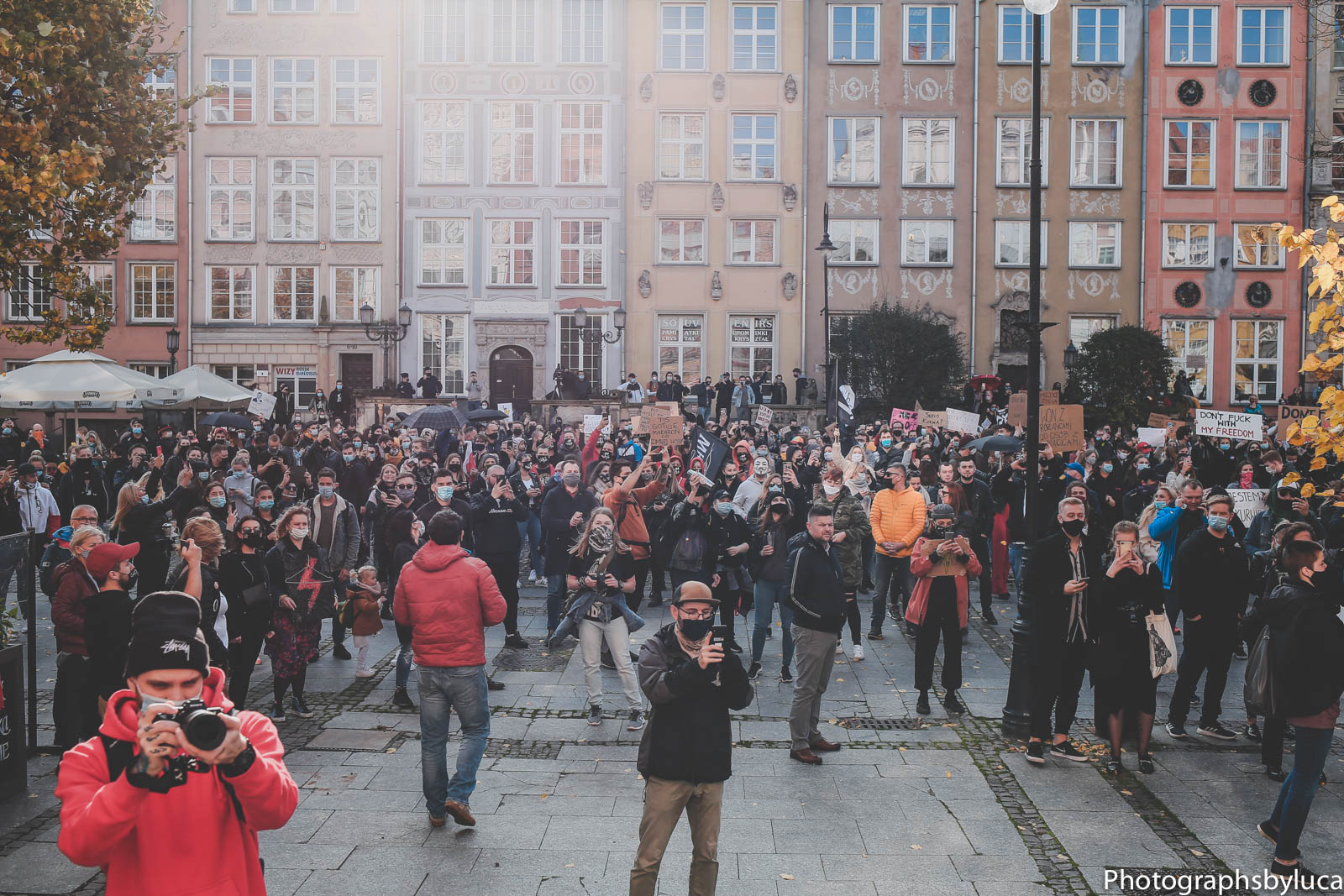
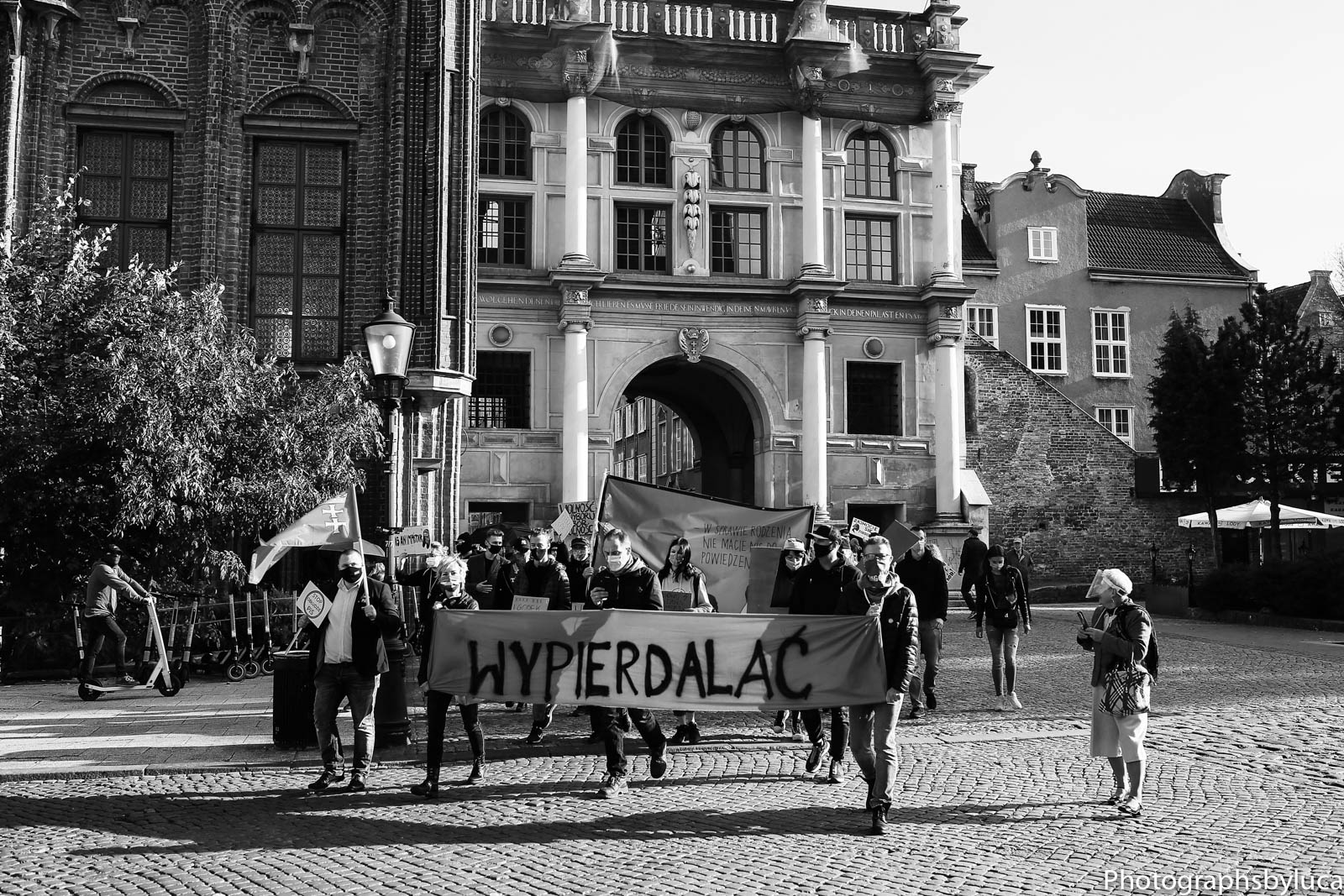
“Wypierdalać” (“Fuck off”) has become another slogan of the protests.

“Piekło kobiet” (“Women’s hell”) is a longstanding slogan used by protesters for women’s rights.

The demonstrations over abortion have coincided with anti-lockdown protests, especially from businesses – such as restaurants and gyms – that have been forced to close. The sign at the front complains of 76,000 premises, which provide hundreds of thousands of jobs, having to shut down.
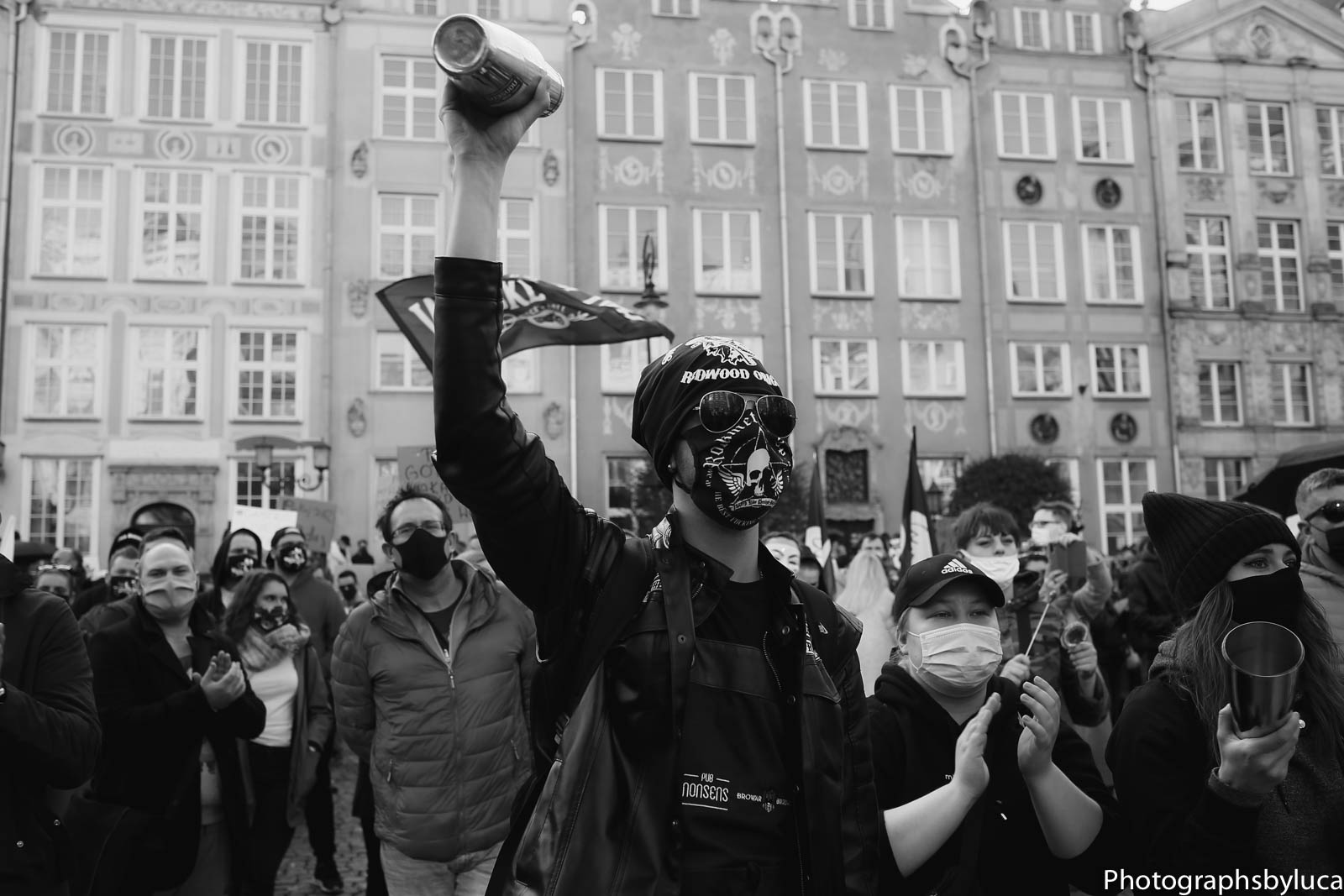
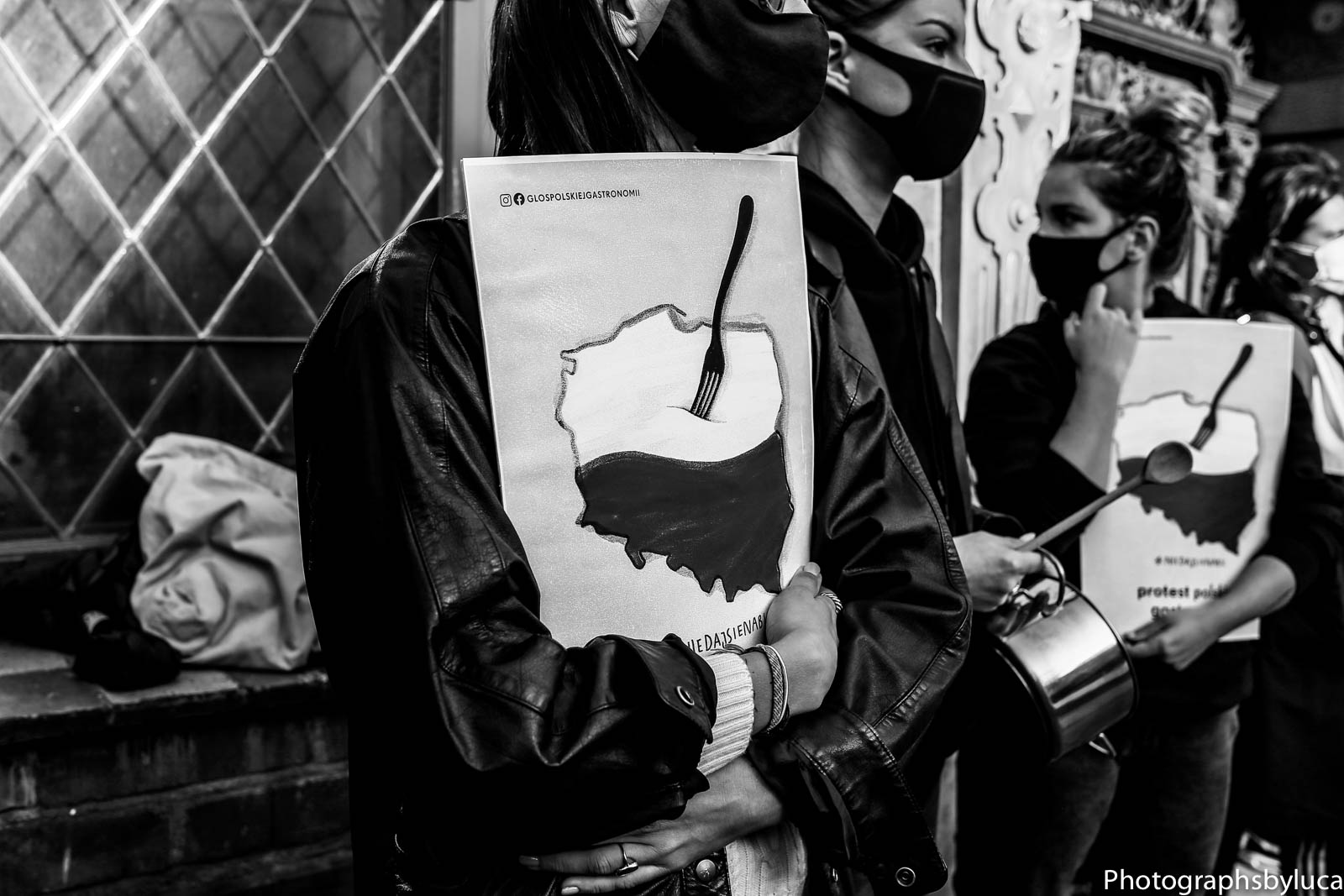
A protest by the hospitality industry against lockdown.
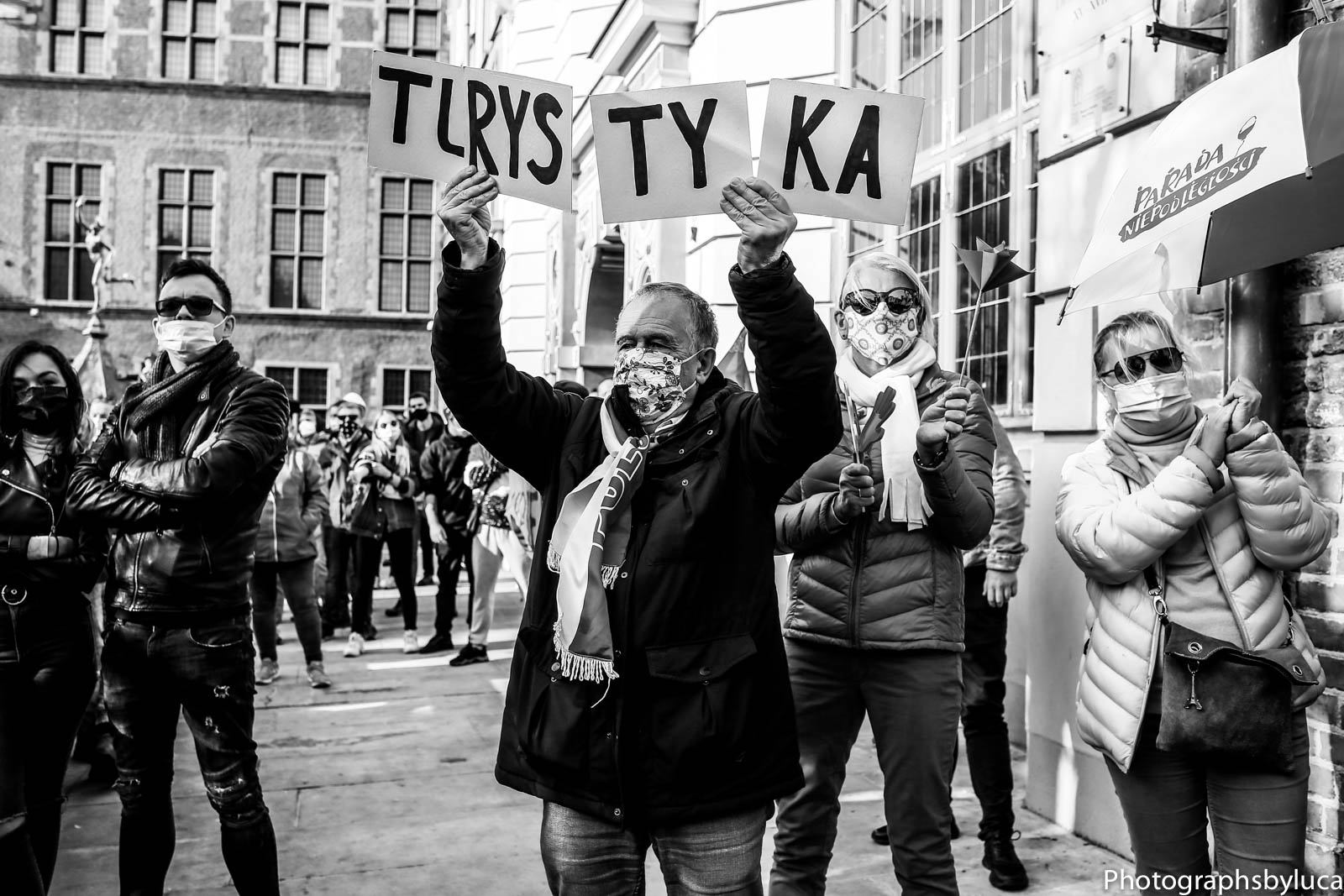
Tourism businesses have also suffered during the pandemic and associated lockdowns.
